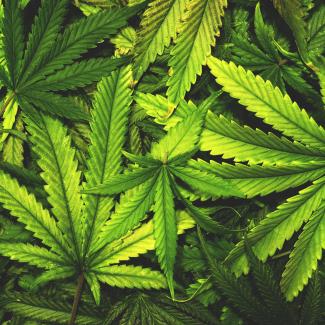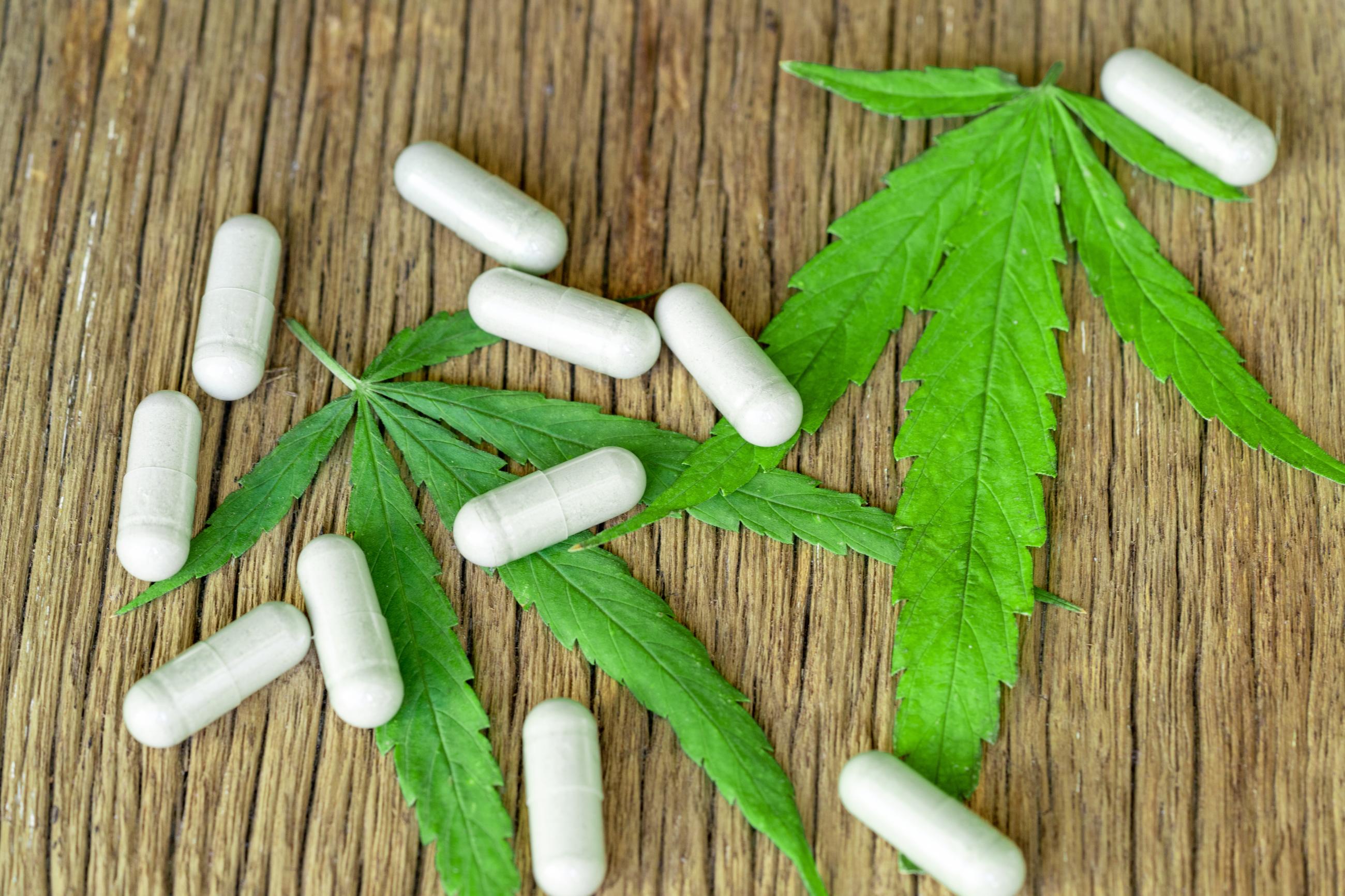Introduction
Many people wonder, “Does THC affect antibiotics?” / “Does marijuana affect antibiotics?” While many may believe antibiotics and cannabis fall into two completely different types of medicine, a growing number of scientific studies suggest the Cannabis sativa plant has potential antibacterial effects. Whether you are an existing medical marijuana patient or are considering becoming one in the future, this article covers why there is a global threat of antibiotic-resistant bacteria from overuse of medicine, new research suggesting cannabis has antibacterial properties, & where cannabis comes into play to combat this pending future dilemma. Additionally, for those who have preexisting reservations on this topic, guidelines for what to do & what not to do when thinking about mixing THC and antibiotics are outlined below so that you can make the most informed decision based on your personal circumstances.
It is understandable that not everyone has the best impression of cannabis & may be skeptical initially. Anti-drug sentiments have been historically drilled into the minds of youth through educational programs such as D.A.R.E. The US government also still classifies marijuana as a “Schedule I substance with no medicinal value.” This classification has created a negative stigma around cannabis for many adults today for fear of retribution by their communities, workplaces, the law, & other areas of life. However, as we loom upon a society that may soon have to face the dilemma of antibiotic-resistant bacteria & the associated rise in mortality, it’s time we put our marijuana prejudice aside to look at the science behind the medicinal potential of the plant.
The Dangers of Antibiotic-Resistant Bacteria
According to the World Health Organization, overprescribing, misuse, & overconsumption of antibiotics in both humans & animals is “one of the biggest threats to global health, food security, & development today” (World Health Organization 2020). As bacteria become more & more resistant to these medicines, there will be an increased risk of infection when performing common procedures in hospitals such as cesarean sections, chemotherapy, surgeries, & organ transplants. Eventually, a higher mortality rate will manifest on a global scale when individuals are no longer able to fight common infections through antibiotics unless we are able to pivot from this pending problem. Aside from human health, antimicrobial resistance could also negatively impact animal agriculture on factory farms & food supplies, ultimately leading to shortages.
While the pharmaceutical industry has advanced society on many levels to date, it’s time that we looked to more holistic remedies to find a better strategy for tackling this problem. Utilizing the holistic potential of the Cannabis sativa plant has been researched as one potential solution to this antibiotic crisis. Although the plant has been used for thousands of years, we still haven’t fully researched its full potential. When a study conducted at the Alabama State University tested the effects of the cannabis derived compound known as cannabidiol (CBD) on Salmonella, they discovered “antibacterial activity of CBD against two relevant pathogenic bacteria.” Studies may be far & few, but we can infer that cannabis has potential healing potential to combat this crisis.
What are Antibiotics – And How Do They Affect Your Body?
It’s important to understand the basics of antibiotics before delving deeper into this topic. Antibiotics are a type of medicine, administered orally, topically, or through injection, that kills or prevents the further spread of bacteria. Bacteria can cause a number of infections in the ears, sinus, throat, urinary tract, or on skin. Antibiotics also do not kill viruses as they are not considered living organisms. Even though humans can potentially fight viruses on their own, bacterial infections differ in the sense that they can linger without the use of treatment or appropriate medical attention.
Even though antibiotics are considered a lifesaving drug, there could also be serious or long lasting negative side effects from use. Common negative side effects from using antibiotics are typically associated with digestive issues such as “nausea, vomiting, & diarrhea” (MacMillan 2018). In more serious cases of prolonged diarrhea, hospitalization may be required. Antibiotics can also negatively wipe out healthy gut bacteria or cause an “overgrowth of bacteria in the small intestine” which could lead to “bloating & cramping that continues even after you've stopped” the medication (MacMillan 2018). Headaches or sun sensitivity/rashes have also been reported.
In an attempt to prevent such digestive upsets, make sure to drink plenty of water, “avoid high-fiber foods,” prolonged sun exposure during peak UV hours, & properly follow the prescription instructions for taking this medication (MacMillan 2018).
Can Marijuana Replace Antibiotics?
Although cannabis has demonstrated potential antibacterial properties, one study found that cannabinoids, which are naturally occurring compounds found in the Cannabis sativa plant, weren’t effective against drug-resistant bugs when taken in a silo. But when mixed with the antibiotic Polymyxin B, also known as Poly-Rx, “the cannabis compound wiped out the drug-resistant pathogens” (Sample 2020, 1). We can infer from these findings that cannabis may not be effective enough on its own to replace antibiotics, but could have synergistic effects in killing bacteria when combined with antibiotics. However, there is currently more research needed on the topic.
Marijuana Has Antibacterial Potential
Modern scientific research suggests the Cannabis sativa plant holds promise for a multitude of health benefits while also demonstrating potential antibacterial properties. One study published by the American Chemical Society, a leading organization for peer-reviewed scientific information, “uncovered the hidden broad-spectrum antibacterial activity of cannabinoids & demonstrated the potential of cannabigerol (CBG) against pathogens” (Farha et al. 2020, 9).
Scientists also discovered in another study that cannabigerol (CBG) killed staph bacteria which “are especially resistant to antibiotics & often drive repeat infections” (Sample 2020, 1). For those who suffer from recurring antibiotic-resistant staph infections, cannabis could provide a beam of hope.
When testing the effects of a hemp-derived powder on Escherichia coli (also known as E. coli) bacteria, researchers uncovered “antibacterial activity” & inhibited the growth of the E. coli bacteria (Khan et al. 2014). As antibiotics become less & less effective against these types of bacteria, we will need to conduct more research to pinpoint exactly how cannabis can assist, & possibly develop new cannabis products for widespread medical use. In order for this to happen, there will need to be a widespread shift in perception from marijuana being perceived as a negative “gateway drug” to being classified as having medicinal value by the federal government. Without this legalization status, it is much harder for researchers to conduct thorough studies on cannabis without fear of retribution. In sum, existing research gives us a glimpse into the potential powers of the plant & provides hope for an imminent future riddled with antibiotic-resistant bacteria.
Will Cannabis Reduce the Effectiveness of my Antibiotics?
Although some may initially be concerned about the potential reduction in antibiotic efficacy when combined with cannabis, one scientific study has demonstrated the exact opposite with synergistic results. When combining Cannabis sativa leaf extract with antibiotics, researchers discovered that this combination could potentially be “used as a good remedial agent against human pathogens & also for the successful development of drug delivery in the future” (Singh et al. 2018, 8).
Short answer — Is it Safe to Consume Cannabis While Taking Antibiotics?
Although generally considered safe, one should take extra caution before using cannabis with “macrolide antibiotics” such as erythromycin, clarithromycin, azithromycin, fidaxomicin, or telithromycin. There is a higher risk for unwanted side effects & adverse reactions for this specific classification of antibiotic which is commonly used to treat infections.
What are the Risks of Using Cannabis While on Antibiotics?
To date, there have not been any reports of any serious adverse events associated with the use of cannabis & antibiotics. However, to be safe, it is best to consult a physician or pharmacist before combining any medications or herbal supplements for unwanted potential drug interactions. Pay close attention to your body & for any side effects that may arise.
Possible Adverse Reactions When Mixing Weed and Antibiotics
Some may be hesitant to combine their cannabis with antibiotics, but similar to any other medication, there is always a risk of drug interaction. Reactions or side effects can occur with antibiotics alone. 1 in 10 people will experience side effects such as vomiting, nausea, bloating, diarrhea, abdominal pain, or loss of appetite after taking antibiotics. In serious cases, an allergic reaction called anaphylaxis can occur within seconds to minutes after exposure. Anaphylaxis, a fatal allergic reaction, can be life-threatening & requires immediate medical attention.
Further adding, supplements, different types of foods (even grapefruit), & other medicines could potentially react with cannabis products. Harvard Health Publishing contributor & pharmacoepidemiologist Katsiaryna Bykov, PharmD, ScD, noted that in some situations “unwanted symptoms or toxicity” could manifest.
When Not to Use Antibiotics With Marijuana
If you are experiencing any illness or infection related to the lungs, it is not advisable to smoke or vape cannabis while taking antibiotics. Although there have not been any comprehensive studies conducted on this topic, your body needs adequate time to heal while fighting an infection. Smoking or vaping while sick with a respiratory infection could potentially lead to worse outcomes. In recent headlines, pop star Doja Cat was forced to cancel multiple concert obligations due to vaping & drinking alcohol while taking antibiotics, which exacerbated her condition.
It’s important to give your body ample time for rest & recovery while abstaining from any activities that could amplify negative side effects. If you are a regular medical cannabis user, try not to go over the dose you regularly take or experiment with any new marijuana products while sick. In lieu of using inhalants, one could opt for cannabis edibles, sublingual tinctures, topicals, or powders instead.
Alternatives to Marijuana While on Antibiotics
Edibles infused with the cannabidiol (CBD), a non-psychoactive compound derived from hemp, may be a potential alternative if you are reluctant to use tetrahydrocannabinol (THC) products while taking antibiotics. CBD doesn't produce the same head or body high felt by THC products. Make sure to buy lab-tested CBD products to ensure purity & that there are no added contaminants that can be harmful, especially to those who are immunocompromised. In the chance that you start feeling any negative side effects, it’s important to stop taking CBD right away.
How Cannabis Interacts with Medication
Although serious adverse effects of cannabis consumption are rare, an interaction can occur with some medications. The following pharmaceutical drugs listed below have an increased risk of interaction with cannabis & should not be taken together.
Adderall - Side Effect: Decreased appetite
Alcohol - Side Effect: Sleepiness, fatigue, & risk of impaired driving / falling
Alfentanil -
Antidepressants - Side Effect: Sleepiness, fatigue, & risk of impaired driving / falling
Antihistamines - Side Effect: Sleepiness, fatigue, & risk of impaired driving / falling
Antipsychotics - Side Effect: Sleepiness, fatigue, & risk of impaired driving / falling
Ativan - Side Effect: Sleepiness, fatigue, & risk of impaired driving / falling
Amiodarone - Side Effect: Risk for serious drug interaction
Benadryl
Benzodiazepines - Side Effect: Sleepiness, fatigue, & risk of impaired driving / falling
Buprenorphine
Butorphanol
Clobazam - Side Effect: Risk for serious drug interaction
Codeine
Dezocine
Fentanyl
Heartburn Medication - Side Effect: Diarrhea
Hydrocodone
Hydromorphone
Kava - Side Effect: Sedation or tiredness
Ketamine
Lamotrigine - Side Effect: Risk for serious drug interaction
Levomethadyl Acetate
Levorphanol
Levothyroxine - Side Effect: Risk for serious drug interaction
Melatonin - Side Effect: Sedation or tiredness
Meperidine
Metformin - Side Effect: Decreased appetite
Methadone
Morphine
Morphine Liposomal
Nalbuphine
NyQuil - Side Effect: Drowsiness
Oliceridine
Opioids - Side Effect: Sleepiness, fatigue, & risk of impaired driving / falling
Oxycodone
Oxymorphone
Pentazocine
Prilosec - Side Effect: Diarrhea
Propoxyphene
Remifentanil
Sodium Oxybate
Stimulants - Side Effect: Decreased appetite
St. John’s Wort - Side Effect: Sedation or tiredness
Sufentanil
Tapentadol
Theophylline
Tramadol
Valproate - Side Effect: Risk for serious drug interaction
Warfarin - Side Effect: Risk for serious drug interaction
Xanax - Side Effect: Sleepiness, fatigue, & risk of impaired driving / falling
Along with current medications, older age & any preexisting medical conditions could also create unwanted side effects. If your medication is not listed above, make sure to double-check with a licensed medical professional or pharmacist before combining any of your medications with medical marijuana to be on the safe side.
Conclusion
In order for humans to survive as a collective, we will need to adapt & pivot when dated solutions may no longer be working. This concept directly applies to the antibiotic crisis. Historically, marijuana use dates back thousands of years, & with the scientific tools & developments available today, it’s about time we allowed for more research to be conducted for the sake of human health. Based on the few cannabis studies available, & the positive feedback from Florida medical marijuana patients, we know there is hope for a healthier, more holistic future, through the aid of plant medicine.
To answer the questions above, “Does weed affect antibiotics?” / “Can you smoke marijuana on antibiotics?” – Considering all of the information provided, if you plan on taking antibiotics along with your medical marijuana, make sure to consult a medical professional first, to be safe. Meet with one of our professionals at Marijuana Doctor to get more information and assistance throughout this process.
Disclaimer
The contents of this article should not be used as a substitute for medical advice from a health care professional & only serves to provide general information.
Citations
1. Singh, Tej, Kumari Jyoti, Amar Patnaik, Ajeet Singh, and S.C. Chauhan. 2018. “Spectroscopic, Microscopic Characterization of Cannabis Sativa Leaf Extract Mediated Silver Nanoparticles and Their Synergistic Effect with Antibiotics against Human Pathogen.” Alexandria Engineering Journal 57 (4): 3043–51. https://doi.org/10.1016/j.aej.2018.04.002.
2. Farha, Maya A., Omar M. El-Halfawy, Robert T. Gale, Craig R. MacNair, Lindsey A. Carfrae, Xiong Zhang, Nicholas G. Jentsch, Jakob Magolan, and Eric D. Brown. 2019. “Uncovering the Hidden Antibiotic Potential of Cannabis,” November. https://doi.org/10.1101/833392.
3. Sample, Ian. 2020. Review of Cannabis Compound Could Be Weapon in Fight against Superbugs. The Guardian, January. https://global-factiva-com.proxy.uchicago.edu/ga/default.aspx.
4. “Cannabis Interactions Checker.” n.d. Drugs.com. Accessed May 25, 2022. https://www.drugs.com/drug-interactions/cannabis-index.html?filter=3.
5. World Health Organization. 2020. “Antibiotic Resistance.” World Health Organization. WHO. July 31, 2020. https://www.who.int/news-room/fact-sheets/detail/antibiotic-resistance.
6. Khan, Belas Ahmed, Jing Wang, Philip Warner, and Hao Wang. 2014. “Antibacterial Properties of Hemp Hurd Powder againstE. Coli.” Journal of Applied Polymer Science 132 (10): n/a-n/a. https://doi.org/10.1002/app.41588.
7. ScD, Katsiaryna Bykov, PharmD. 2021. “CBD and Other Medications: Proceed with Caution.” Harvard Health Blog. January 11, 2021. https://www.health.harvard.edu/blog/cbd-and-other-medications-proceed-with-caution-2021011121743.
8. “Is It Safe to Smoke Marijuana If You Have a Cold or the Flu?” 2018. Healthline. December 5, 2018. https://www.healthline.com/health/cold-flu/smoking-weed-with-a-cold#overview.
9. MacMillan, Amanda. 2018. “10 Side Effects of Antibiotics–and What to Do about Them.” Health.com. Health.com. October 2, 2018. https://www.health.com/condition/digestive-health/side-effects-antibiotics.
10. Bauer, Brent. 2018. “CBD: Safe and Effective?” Mayo Clinic. 2018. https://www.mayoclinic.org/healthy-lifestyle/consumer-health/expert-answers/is-cbd-safe-and-effective/faq-20446700.
























